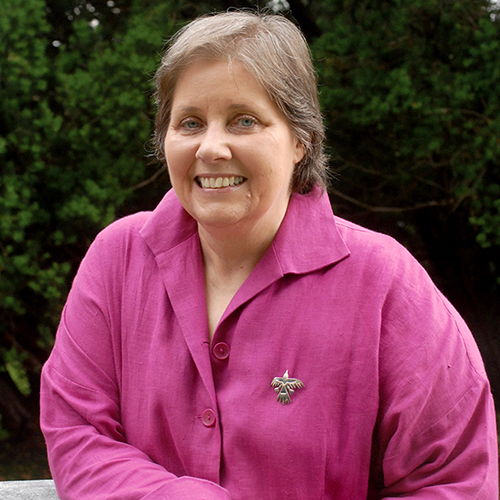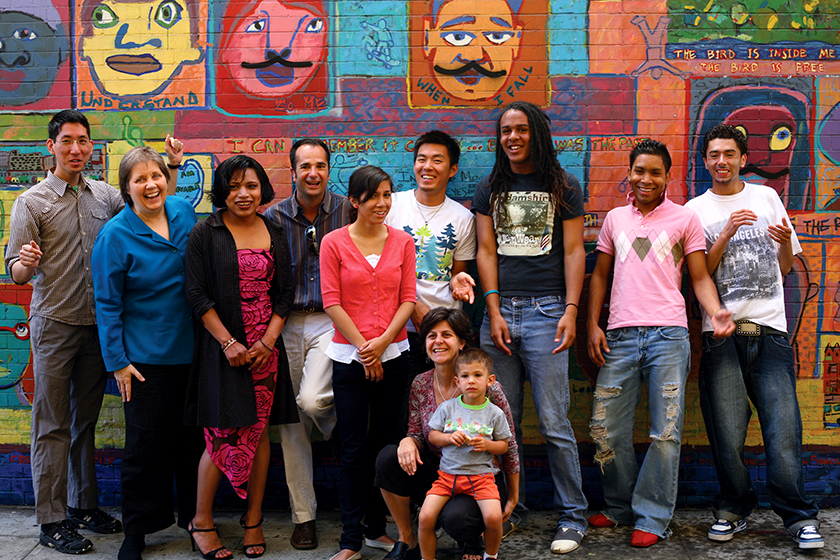
Caitlyn Ryan, a clinical social worker and distinguished adjunct professor, is founder and director of the Family Acceptance Project at SF State. Through research, intervention and education, the project helps families learn to support their lesbian, gay, bisexual and transgender children. The initiative celebrates its 15th anniversary in 2017.
The Family Acceptance Project, through extraordinary research interviews with LGBT young people, was the first to show a link between family support and health and well-being in LGBT children as adults. Why was that so groundbreaking?
Families had been invisible in the lives of their LGBT children. Providers of care, from doctors to social workers, didn’t even ask LGBT adolescents about their families, because everyone presumed that all families were rejecting. The perception was that families could never learn to support their child and that they really wanted to hurt them emotionally.
Did that turn out to be the case?
One of the important findings of our research was that parents who were rejecting their LGBT children were typically trying to help their children fit in and be accepted by others, and not be hurt — physically or emotionally — by other people. They were motivated by care and concern, but the way parents acted out those behaviors was experienced as rejection by the child.
What behaviors are you talking about?
Trying to change that child’s sexual identity or gender expression, using religion and religious practice to prevent them from being LGBT or excluding them from family events and activities. That’s why so many LGBT young people have ended up out of home. And, as our research shows, it’s also contributed to really high levels of health disparities.
What types of health disparities?
Depression, illegal drug use, suicidality, sexually transmitted diseases. Our research indicates that family acceptance helps protect against these disparities and helps promote self-esteem, well-being and overall health for LGBT young people.
What should parents be doing differently?
Behaviors as simple as sitting and talking with their child and asking them what it is like for them, without interrupting or ridiculing them or punishing them. Or requiring that other family members treat the child with respect, even if they disagree.

What about families with deep religious or moral objections?
We don’t force them to accept something they think is wrong. But what we say is that they can do this because they love their child, because they want their child to be safe, because they don’t want their child to feel so sad, isolated or alone.
How are you getting your message out to families?
We have started implementing a family support model that we developed in the Bay Area and in Wayne County, Michigan. And we’re working with agencies in other counties and states to integrate our model into their services and systems of care.
We’ve also developed multicultural versions of our family education booklets that are in three languages, and we’ve been developing a series to help families of different faiths learn to support their child in the context of their faith. Our publications and other resources are online at familyproject.sfsu.edu.
Is SF State a good fit for the Family Acceptance Project?
I don’t know of any other university where a commitment to social justice is as important as it is at San Francisco State.
What’s your biggest challenge?
I raise all of the funds myself to do this work. We’re always looking for supporters and donors who can help us carry this work forward.
Is it an exaggeration to say that you save lives?
I’ve been told that I’ve saved thousands of lives. I hear from parents all the time, “We started off doing everything the wrong way. Our child was at such risk, but we found your materials and we changed what we’re doing, and we’re so grateful.”
Read more about the Family Acceptance Project.